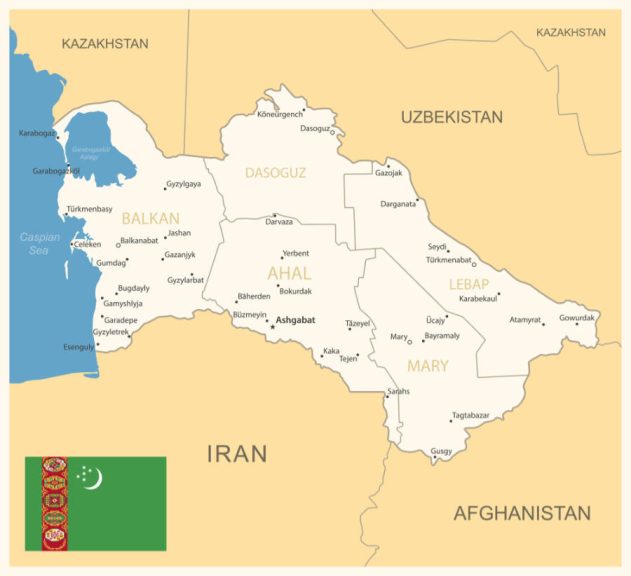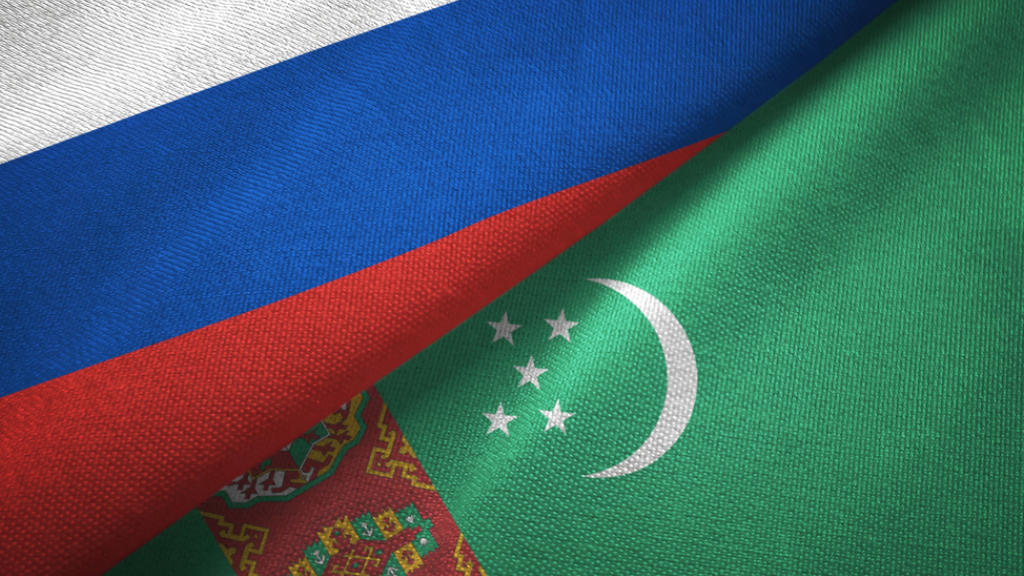Turkmenistan’s Deputy Prime Minister Khojamyrat Geldimyradov has stated during the Russian National Day celebrations (June 12) at the Russian embassy in Ashgabat, that Russia is a key trade partner of Turkmenistan with 2024 bilateral trade exceeding US$1.6 billion. He said that bilateral trade grew 58% between January and May this year alone. If maintained, that would imply a 2025 bilateral Russia-Turkmenistan trade total in excess of US$2.5 billion.
He stated that “Turkmenistan and Russia have built a strong strategic partnership based upon the vast historical experience, neighbourliness and mutual respect” and noted positive dynamics of bilateral trade and a marked change in the structure of Turkmen exports to Russia in favour of processing industries.
He also said that the Kazakhstan-Turkmenistan-Iran railway (ed: part of the INSTC) “opens broad prospects for increasing the volumes and quality of trade and economic cooperation along the INSTC. There is a huge potential for cooperating in industries, energy, transport, transit, logistics, the digital economy and the private sector.”

Turkmenistan participates in various Eurasian economic cooperation frameworks, and is a member of the Commonwealth of Independent States (CIS) in addition to having a bilateral investment treaty with Russia. In 2024, Turkmenistan signed a deal with Uzbekistan to create a free trade zone in the Shavat-Dashoguz region, promoting cross-border trade with favourable customs and infrastructure. Additionally, Turkmenistan is involved in the International North-South Transport Corridor (INSTC), linking Russia, Iran, and India.
With a population of 7.5 million and a GDP (PPP) of US$131.7 billion, Turkmenistan’s GDP per capita (PPP) stands at US$19,728. The Asian Development Bank (ADB) projects a 6.5% growth rate for 2025.
Much of the bilateral trade has been agricultural, with Turkmenistan exporting to Russia fruits and vegetables, cotton, and linen. Turkmen tomatoes are considered amongst Central Asia’s best and are a major export crop.
Russia exports include medical equipment and supplies, fertilizers, and increasing amounts of construction equipment as Turkmenistan upgrades its national transportation infrastructure.
At the TIF 2024 Investment Forum held in Ashgabat last September, Dmitry Volvach, the Russian Deputy Minister of Economic Development emphasized that Turkmenistan and Russia are actively unlocking their investment and trade potential. He noted that “In particular, Turkmenistan is seeking to diversify its exports by increasing supplies of chemical products, agricultural products and textiles. For its part, Russia is ready to increase the volume of non-resource exports, including high-tech products, chemical and mechanical engineering products, and pipe and oil and gas equipment.”
According to Volvach, the products that Russia is ready to supply are in demand for large infrastructure projects being implemented in Turkmenistan. These include the renewal of the railway rolling stock fleet, the modernization of the gas transport system and the construction of new roads.
Further Reading
Turkmenistan, Russia and the Great Silk Road

 Русский
Русский













